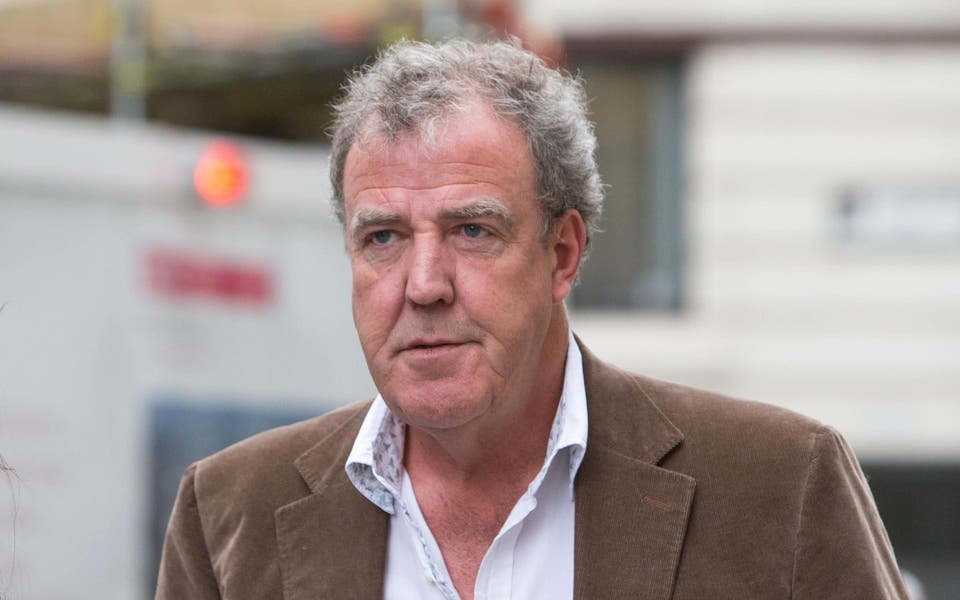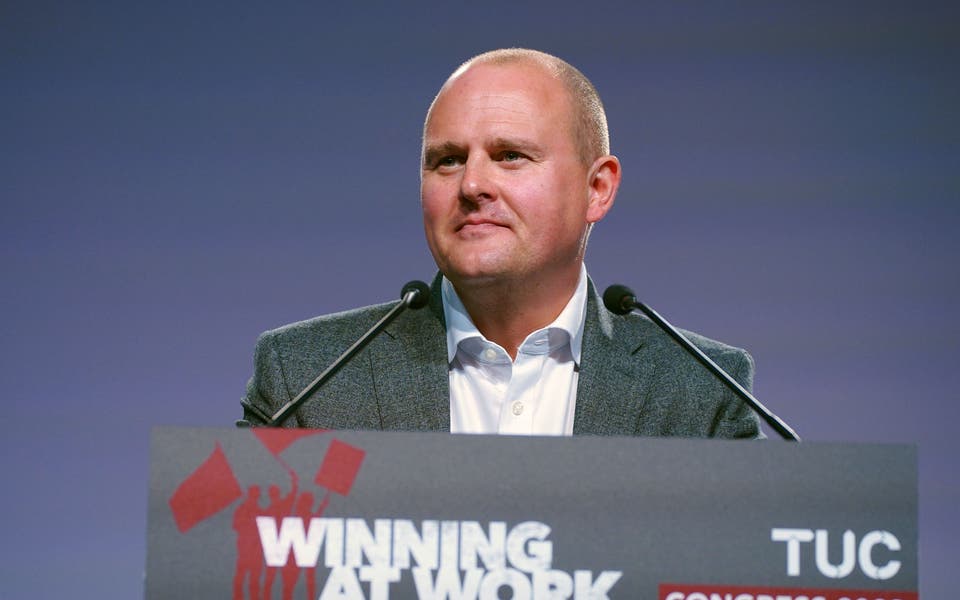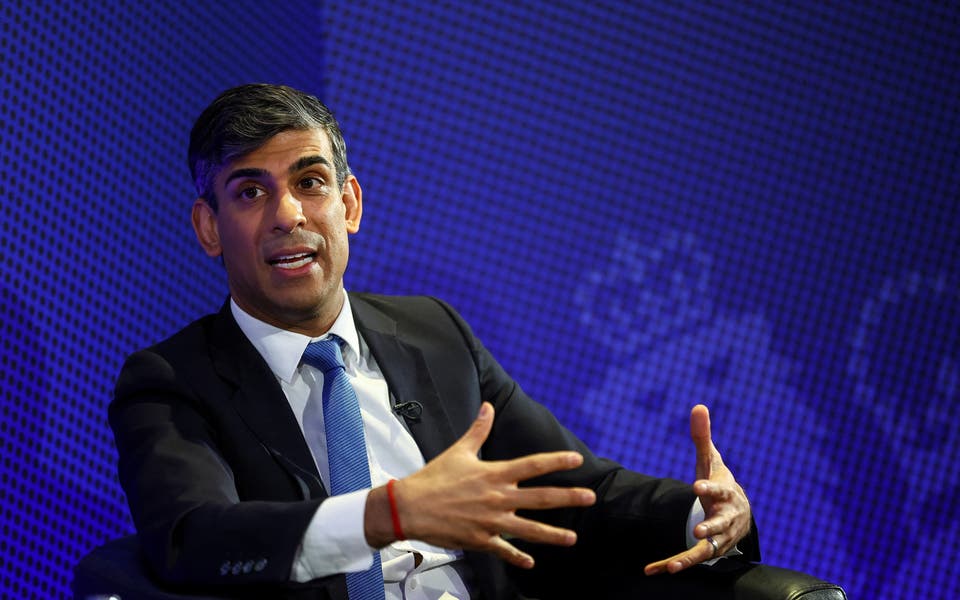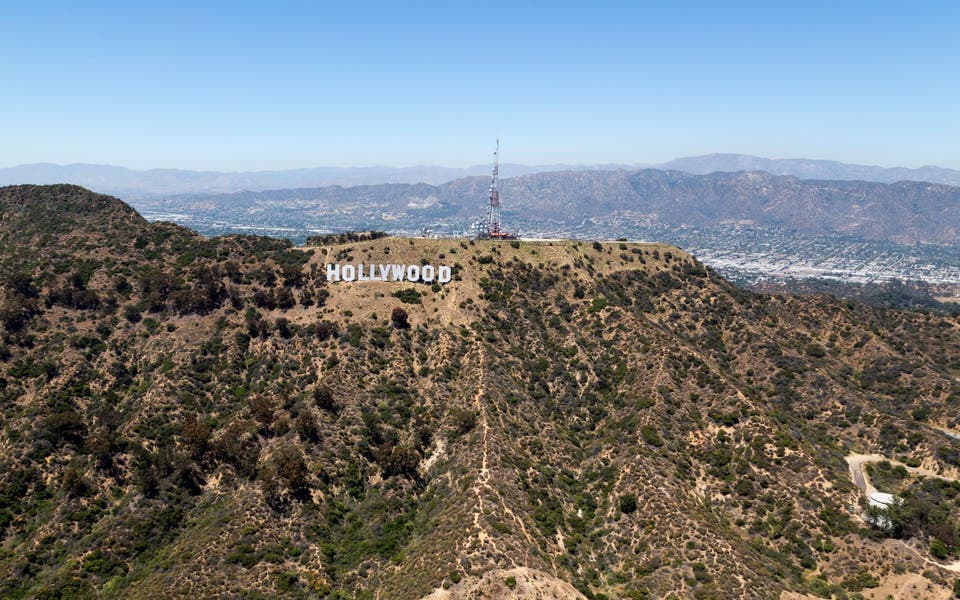Tory election win unlikely says ‘realist’ Shapps as Farage seeks to woo voters
A Conservative General Election victory is unlikely, a Cabinet minister has acknowledged, in the latest sign that the Tory campaign is now focused on saving as many seats as possible to form an effective opposition.
Grant Shapps said he is a “realist” and would not “try and pretend black is white” by claiming the Conservatives are on course for victory.
As Reform UK launched its policy promises, the Defence Secretary restated his warning to wavering Tories that a vote for Nigel Farage’s party could risk handing “unchecked” power to Labour.
He told Times Radio it is “possible to win the election”, but conceded it is “not the most likely outcome”, adding: “I’m a realist.”
Asked if a Tory victory is unlikely, he replied: “I think that’s the realistic position, isn’t it? I mean, I live in the real world. So, you know, let’s not try and pretend black is white.”
But he insisted: “We’re still fighting for absolutely every single vote, which is absolutely the right thing to do, and warning of the dangers of Labour.”
On LBC Radio Mr Shapps said he understands the “sense of frustration” that might lead some voters to back Reform UK.
“But I think, in the end, there are only two people who can be in Downing Street – it’s either Rishi Sunak or it’s Keir Starmer.
“And if you vote Reform, or Lib Dem, or any other direction for that matter, that simply helps Keir Starmer go in with unchecked power to do things like release all the people who’ve already been rounded up to be deported, which is exactly the opposite to what a lot of Reform voters would want.”
Read More
Fellow Cabinet minister Penny Mordaunt said the election result is “not a foregone conclusion”, but conceded her party is now “the underdog”.
Ms Mordaunt – a potential leadership contender if she holds on to her Portsmouth North seat – also told the Independent “we need to go further on those tax cuts”.
Mr Farage confirmed he has ambitions to be the UK’s prime minister by 2029 under his plan to unite the right by effectively taking over the Conservative Party.
Speaking to BBC Radio 4’s Today programme, he said: “(The Conservatives) can’t agree on anything, they’re split down the middle, and we know what we stand for, we know what we believe in, and for democracy to function properly there needs to be a proper voice of opposition.
“And our plan – and this is our first big election as a party – our plan is to establish that bridgehead in Parliament and to use that voice to build a big national campaigning movement around the country over the course of the next five years for genuine change.”
Asked if he has ambitions to be prime minister following an election in 2029, Mr Farage replied: “Yes, absolutely. I think the disconnect between the Labour and Conservative Westminster-based parties and the country – the thoughts, hopes and aspirations of ordinary people – are so far apart from where our politics is.”
Labour intends to spend the week focusing on its plans for the economy, with shadow chancellor Rachel Reeves joining Sir Keir on the campaign trail.
She said she will seek closer trade ties with the EU and more foreign investment as she kicks off an economy-focused week, while Rishi Sunak is returning to the campaign trail after a few days’ hiatus.
Labour’s shadow chancellor has suggested she could revise parts of Boris Johnson’s 2020 Brexit deal, including seeking closer alignment with EU rules in the chemicals and veterinary sectors, better touring rights for UK artists, and greater mutual recognition of qualifications for financial services workers.
Ms Reeves said this is not an “exclusive” list, telling the Financial Times: “We would look to improve our trading relationship with Europe.
“I don’t think anyone voted Leave because they were not happy that chemicals regulations were the same across Europe.”
Her remarks appear to suggest that Labour would go further than previously thought in pushing for improved trade terms with the bloc, having so far been hesitant to discuss Brexit during the General Election campaign.
The Labour frontbencher also pledged to “hit the ground running to show that Britain is open for business” by holding a global investment summit in the first 100 days of entering government.
She met members of her British infrastructure council on Monday morning to discuss attracting foreign investors who have been put off by political instability in the UK.
The party has pledged to invest £7.3 billion in the fund over the course of the next parliament if it wins the General Election to help create 650,000 jobs.
“The next Labour government will work hand in hand with the private sector to bring investment to Britain’s industrial heartlands and I have been clear that our national wealth fund will be a crucial tool in the armoury to deliver on this ambition,” Ms Reeves said.
Labour’s Jonathan Ashworth ruled out council tax bands being changed under Sir Keir.
The Tories have targeted Labour over a series of potential tax rises that could be imposed after the election if Sir Keir is in No 10.
“There is nothing in our manifesto that requires additional taxes on working people. We’ve been very clear that income tax, VAT and national insurance will not rise. We are not going to do council tax re-banding, as the Tories are putting it and suggesting,” he said.
As Labour and the Tories continue to trade blows on tax and spending, Mr Sunak criticised Labour’s pledges as a “con”.
The Prime Minister, returning to the campaign fray after official trips to the G7 summit in Italy and a Ukraine peace conference in Switzerland, told the Express: “At this election Keir Starmer is asking for you and your family to sign a blank cheque, and we all know what he wants to do with it: put up your taxes so he can run riot with your money.”



